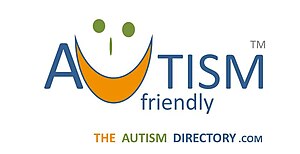By MOISES VELASQUEZ-MANOFF
IN recent years, scientists have made extraordinary advances in understanding the causes of autism, now estimated to afflict 1 in 88 children. But remarkably little of this understanding has percolated into popular awareness, which often remains fixated on vaccines.
So here’s the short of it: At least a subset of autism — perhaps
one-third, and very likely more — looks like a type of inflammatory
disease. And it begins in the womb.
It starts with what scientists call immune dysregulation. Ideally, your
immune system should operate like an enlightened action hero, meting out
inflammation precisely, accurately and with deadly force when
necessary, but then quickly returning to a Zen-like calm. Doing so
requires an optimal balance of pro- and anti-inflammatory muscle.
In autistic individuals, the immune system fails at this balancing act. Inflammatory signals dominate. Anti-inflammatory ones are inadequate. A state of chronic activation prevails. And the more skewed toward inflammation, the more acute the autistic symptoms.
Nowhere are the consequences of this dysregulation more evident than in
the autistic brain. Spidery cells that help maintain neurons — called
astroglia and microglia — are enlarged from chronic activation. Pro-inflammatory signaling molecules abound. Genes involved in inflammation are switched on.
These findings are important for many reasons, but perhaps the most
noteworthy is that they provide evidence of an abnormal, continuing
biological process. That means that there is finally a therapeutic target
for a disorder defined by behavioral criteria like social impairments,
difficulty communicating and repetitive behaviors.
But how to address it, and where to begin? That question has led
scientists to the womb. A population-wide study from Denmark spanning
two decades of births indicates that infection during pregnancy increases the risk of autism in the child. Hospitalization for a viral infection, like the flu, during the first trimester of pregnancy triples the odds. Bacterial infection, including of the urinary tract, during the second trimester increases chances by 40 percent.
The lesson here isn’t necessarily that viruses and bacteria directly
damage the fetus. Rather, the mother’s attempt to repel invaders — her inflammatory response — seems at fault. Research by Paul Patterson,
an expert in neuroimmunity at Caltech, demonstrates this important
principle. Inflaming pregnant mice artificially — without a living
infective agent — prompts behavioral problems
in the young. In this model, autism results from collateral damage.
It’s an unintended consequence of self-defense during pregnancy.
Yet to blame infections for the autism epidemic is folly. First, in the
broadest sense, the epidemiology doesn’t jibe. Leo Kanner first described infantile autism
in 1943. Diagnoses have increased tenfold, although a careful
assessment suggests that the true increase in incidences is less than
half that. But in that same period, viral and bacterial infections have
generally declined. By many measures, we’re more infection-free than
ever before in human history.
Better clues to the causes of the autism phenomenon come from parallel
“epidemics.” The prevalence of inflammatory diseases in general has
increased significantly in the past 60 years. As a group, they include asthma, now estimated to affect 1 in 10 children — at least double the prevalence of 1980 — and autoimmune disorders, which afflict 1 in 20.
 |
| Reports of autism cases per 1,000 children grew dramatically in the US from 1996 to 2007. It is unknown how much, if any, growth came from changes in autism's prevalence. (Photo credit: Wikipedia) |
In some cases, scientists even see a misguided immune response in action. Mothers of autistic children often have unique antibodies
that bind to fetal brain proteins. A few years back, scientists at the
MIND Institute, a research center for neurodevelopmental disorders at
the University of California, Davis, injected these antibodies into
pregnant macaques. (Control animals got antibodies from mothers of
typical children.) Animals whose mothers received “autistic” antibodies
displayed repetitive behavior. They had trouble socializing with others
in the troop. In this model, autism results from an attack on the
developing fetus.
But there are still other paths to the disorder. A mother’s diagnosis of asthma or allergies during the second trimester of pregnancy increases her child’s risk of autism.
 |
| Autism Awareness (Photo credit: Wikipedia) |
Debate swirls around the reality of the autism phenomenon, and rightly
so. Diagnostic criteria have changed repeatedly, and awareness has
increased. How much — if any — of the “autism epidemic” is real, how
much artifact?
YET when you consider that, as a whole, diseases of immune dysregulation have increased in the past 60 years — and that these disorders are linked to autism — the question seems a little moot. The better question is: Why are we so prone to inflammatory disorders? What has happened to the modern immune system?
There’s a good evolutionary answer to that query, it turns out.
Scientists have repeatedly observed that people living in environments
that resemble our evolutionary past, full of microbes and parasites,
don’t suffer from inflammatory diseases as frequently as we do.
 |
| English: The autism friendly mark for use on the autism directory site (Photo credit: Wikipedia) |
For autoimmune and allergic diseases linked to autism, meanwhile, the
evidence is compelling. In environments that resemble the world of yore,
the immune system is much less prone to diseases of dysregulation.











No comments:
Post a Comment
Please b.Logictive! :)